Alzheimer's Dementia
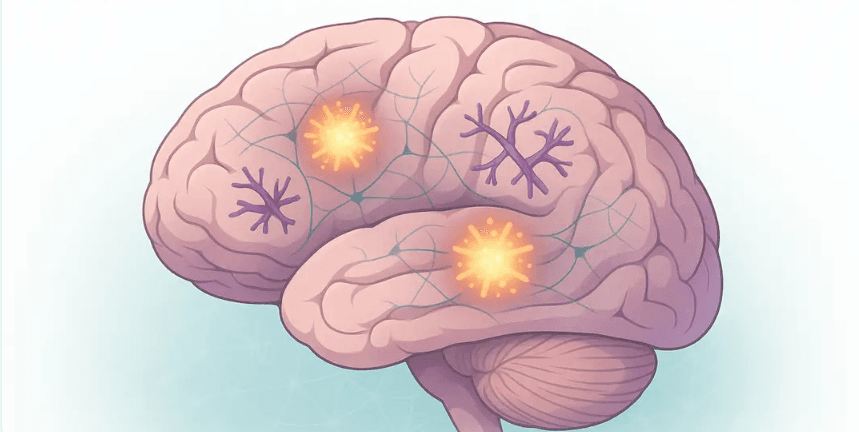
Overview
Alzheimer's is the most common dementia, progressively affecting memory, thinking, and behaviour. Abnormal protein deposits damage brain cells. Primarily affecting over-65s, it accounts for 70% of Australia's 250,000 dementia cases. Though incurable, early diagnosis and comprehensive care significantly improve quality of life.
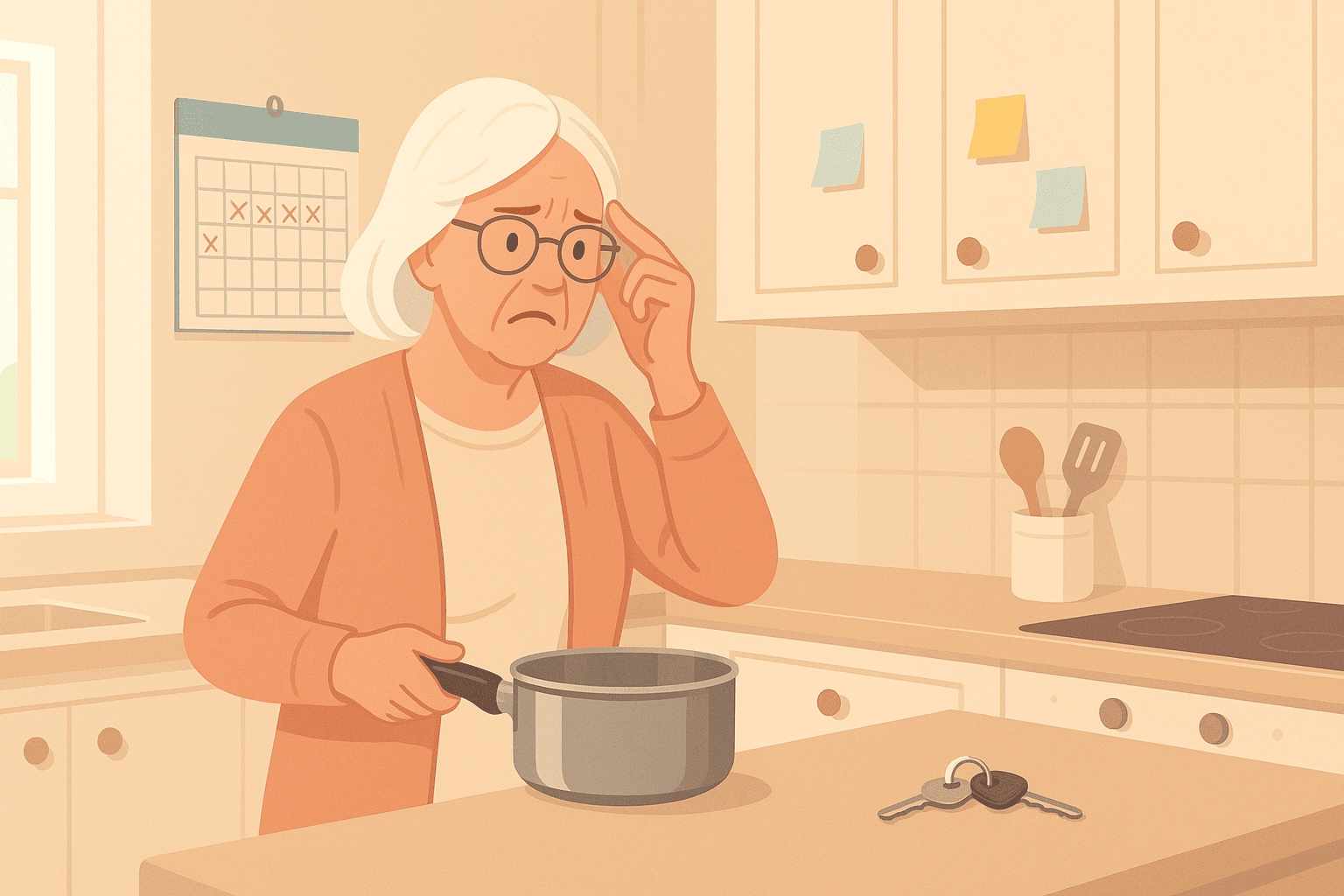
Symptoms
- Memory loss that disrupts daily life, particularly forgetting recently learned information or important dates
- Challenges in planning or solving problems, such as difficulty following familiar recipes or managing finances
- Difficulty completing familiar tasks at home, work, or leisure activities
- Confusion with time or place, losing track of dates, seasons, or where they are
- Trouble understanding visual images and spatial relationships, affecting reading or judging distances
- New problems with words in speaking or writing, including stopping mid-conversation or struggling to find the right word
- Misplacing things and losing the ability to retrace steps, sometimes accusing others of stealing
- Decreased or poor judgement, such as giving large amounts of money to telemarketers
- Withdrawal from work or social activities due to difficulty keeping up with conversations or following activities
- Changes in mood and personality, becoming confused, suspicious, depressed, fearful, or anxious
- Difficulty recognising familiar faces or remembering names of close family members in advanced stages
- Sleep disturbances, including sleeping during the day and restlessness at night
- Repetitive behaviours such as asking the same questions or performing the same activities multiple times
Causes and Risk Factors
Abnormal protein deposits called amyloid plaques and tau tangles that accumulate in the brain over time.
Known Risk Factors
- Age is the greatest risk factor, with the likelihood doubling approximately every five years after age 65
- Family history and genetics play a role, though only 5-10% of cases are directly inherited through genetic mutations
- Previous head injuries, particularly those involving loss of consciousness, may increase risk
- Cardiovascular conditions such as high blood pressure, diabetes, and high cholesterol that affect blood flow to the brain
- Lifestyle factors including lack of physical exercise, poor diet, smoking, and excessive alcohol consumption
- Social isolation and lack of mental stimulation may contribute to cognitive decline
- Environmental factors are still being researched, but some studies suggest links to air pollution and certain toxins
- Gender differences show that women are more likely to develop Alzheimer's, partly due to longer life expectancy
- Sleep disorders and chronic poor sleep quality may contribute to the development of Alzheimer's pathology
Education level and lifelong learning appear to provide some protection against cognitive decline.
It's important to note that having risk factors doesn't guarantee someone will develop Alzheimer's dementia.
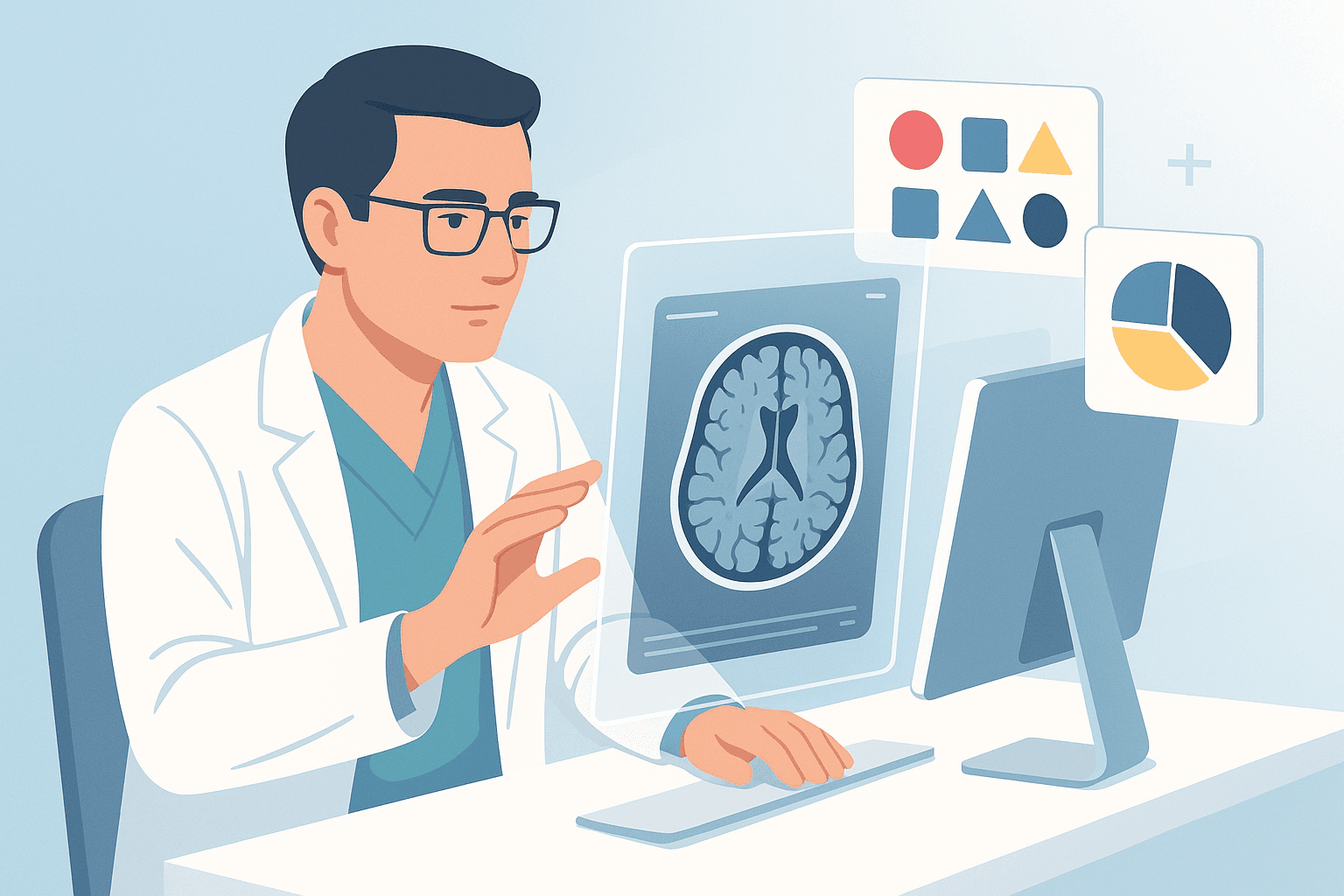
Diagnosis
Comprehensive medical history and physical examination to rule out other causes of cognitive decline. This will likely include a detailed cognitive assessment using standardised tests to evaluate memory, thinking, and problem-solving abilities.
Typically, further investigations include:
- Brain imaging studies including MRI to examine brain structure and rule out other conditions. CT is possible but typically provides low clinical value in this setting.
- Blood tests to exclude other medical conditions that can cause dementia-like symptoms, such as vitamin deficiencies or thyroid problems, these are important to check because they can be reversed in many instances with treatment.
- Neuropsychological testing conducted by specialists to assess specific cognitive functions in detail
- PET scans may be used in some cases to detect amyloid plaques or measure brain metabolism
- Lumbar puncture (spinal tap) might be considered in certain situations to analyse cerebrospinal fluid for Alzheimer's biomarkers
Assessment typically takes several appointments over weeks to months to ensure accurate diagnosis. At subsequent appointments family members are often interviewed to provide additional information about changes in behaviour and function.
The diagnosis process aims to determine not just if dementia is present, but what type and stage. Early diagnosis allows for better planning and access to treatments that may slow progression
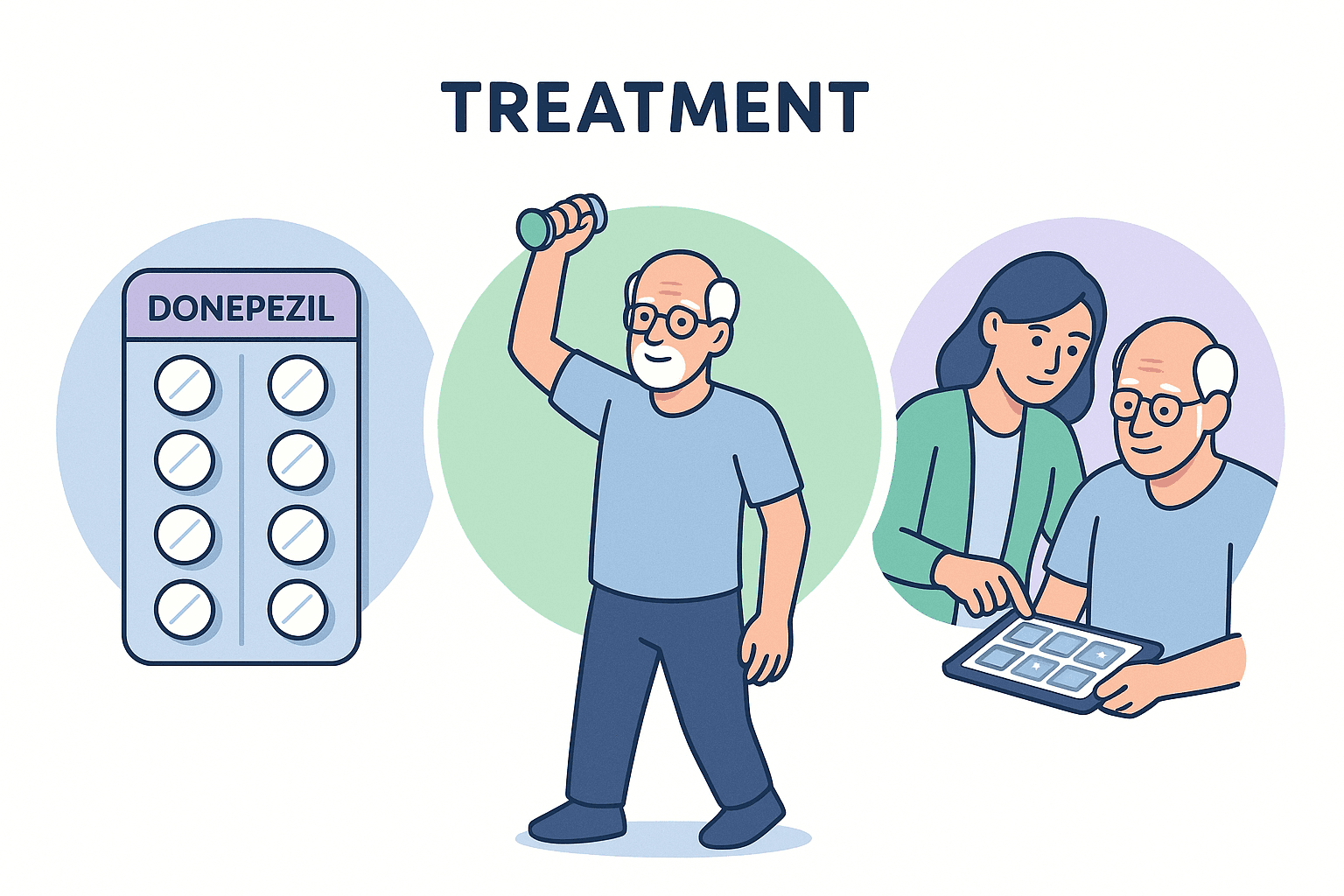
Treatments
Medical Treatments
Cognitive Enhancement Medications
Medications such as donepezil, rivastigmine, and galantamine can help maintain cognitive function in mild to moderate stages of the disease.
Advanced Stage Treatment
Memantine may be prescribed for moderate to severe Alzheimer's to regulate brain chemical activity and potentially slow progression.
Ongoing Medical Care
Regular medical monitoring ensures treatments are adjusted appropriately and new symptoms are addressed as they arise. Management of concurrent health conditions such as diabetes, heart disease, and depression is also essential.
Therapeutic Interventions
Cognitive and Mental Health Support
Cognitive stimulation therapy and mental exercises help maintain thinking skills and social engagement for as long as possible.
Physical Rehabilitation
Physical exercise programmes tailored to individual abilities can improve mood and help maintain physical function. Occupational therapy assists in maintaining independence in daily activities and modifying the home environment for safety.
Communication Support
Speech therapy addresses communication difficulties and swallowing problems that may develop as the condition progresses.
Daily Life and Social Support
Behavioural Management
Behavioural interventions help manage challenging behaviours whilst improving overall quality of life for both patients and carers.
Social Engagement
Social activities and day programmes maintain important connections and provide mental stimulation in a supportive environment.
Nutritional Care
Nutritional support ensures adequate diet and helps prevent weight loss, which can be a significant concern in later stages.
Additional Therapeutic Options
Complementary Therapies
Music therapy, art therapy, and aromatherapy may provide comfort, stimulation, and emotional benefits alongside conventional treatments.
Research Participation
Clinical trial participation may offer access to experimental treatments whilst contributing to advancing research for future patients.
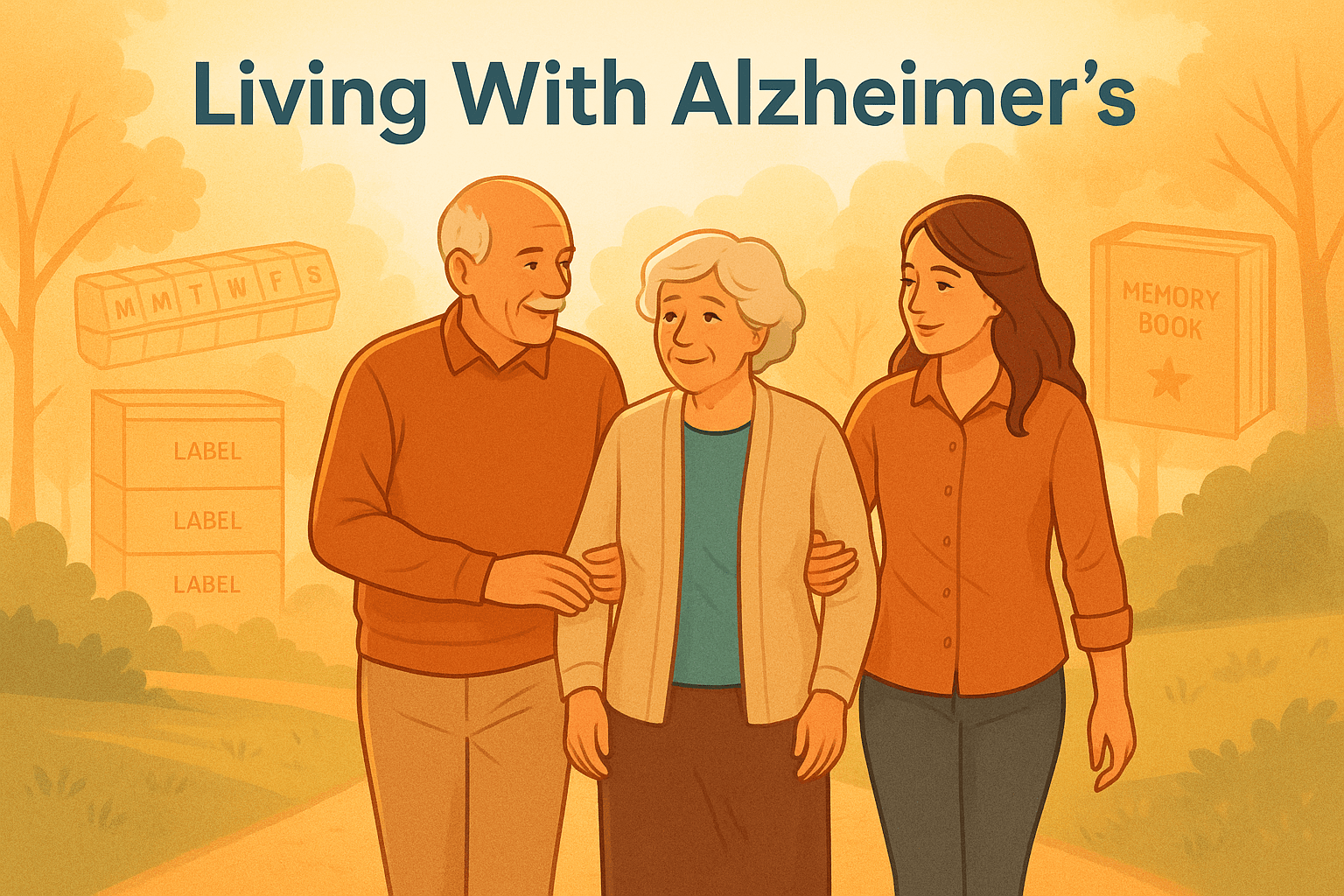
Dementia Care Guide: Essential Tips for Living Well with Dementia
Creating a Safe Home Environment for Dementia Patients
Dementia-Friendly Home Setup and Safety
Creating a dementia-friendly home environment involves maintaining familiar surroundings and avoiding unnecessary changes to reduce confusion. Remove hazards and use clear labels or signs for important areas like bathrooms, bedrooms, and exits. This safe environment helps dementia patients navigate their home with confidence and reduces anxiety.
Daily Routines for Dementia Care
Establishing consistent daily routines and structure significantly reduces confusion and anxiety in dementia patients. Regular schedules for meals, medication, activities, and rest create predictability that supports cognitive function and improves quality of life for both patients and caregivers.
Dementia Care Strategies for Independence
Memory Aids and Cognitive Support Tools
Effective memory aids for dementia include calendars, pill organisers, and reminder notes placed in highly visible locations. These dementia care tools help maintain independence longer when they are simple, clearly labelled, and positioned where patients can easily access and understand them.
Activities and Physical Health for Dementia Patients
Dementia-appropriate activities that match current abilities include listening to familiar music, looking at photo albums, and gentle exercises. Regular physical activity helps dementia patients maintain strength, balance, and mood, whilst proper nutrition and hydration support overall brain health and cognitive function.
Communication and Social Support in Dementia Care
Dementia Communication Techniques
Effective communication with dementia patients involves speaking clearly, using simple sentences, and allowing adequate time for responses. These communication strategies reduce frustration and maintain dignity whilst supporting successful interactions between patients, families, and caregivers.
Social Connections and Dementia Support Groups
Maintaining social connections through family visits, dementia support groups, and community day programmes prevents isolation and supports emotional wellbeing. Regular social interaction provides mental stimulation essential for dementia patients and helps preserve meaningful relationships.
Healthcare Management and Dementia Support Services
Medical Care and Health Monitoring for Dementia
Comprehensive dementia care includes managing other health conditions and scheduling regular follow-ups with healthcare providers. This approach ensures proper monitoring of dementia progression and timely adjustment of care plans to meet changing needs.
Community Services and Dementia Care Resources
Essential dementia support services include Meals on Wheels, home care assistance, and respite care programmes. These community resources provide practical support for dementia families whilst enabling caregivers to maintain their caring role without becoming overwhelmed.
Dementia Care Planning and Family Support
Future planning for dementia care should include legal and financial arrangements completed whilst decision-making capacity remains intact. Dementia support groups for both patients and families offer valuable opportunities to share experiences, learn coping strategies, and connect with others facing similar dementia care challenges.
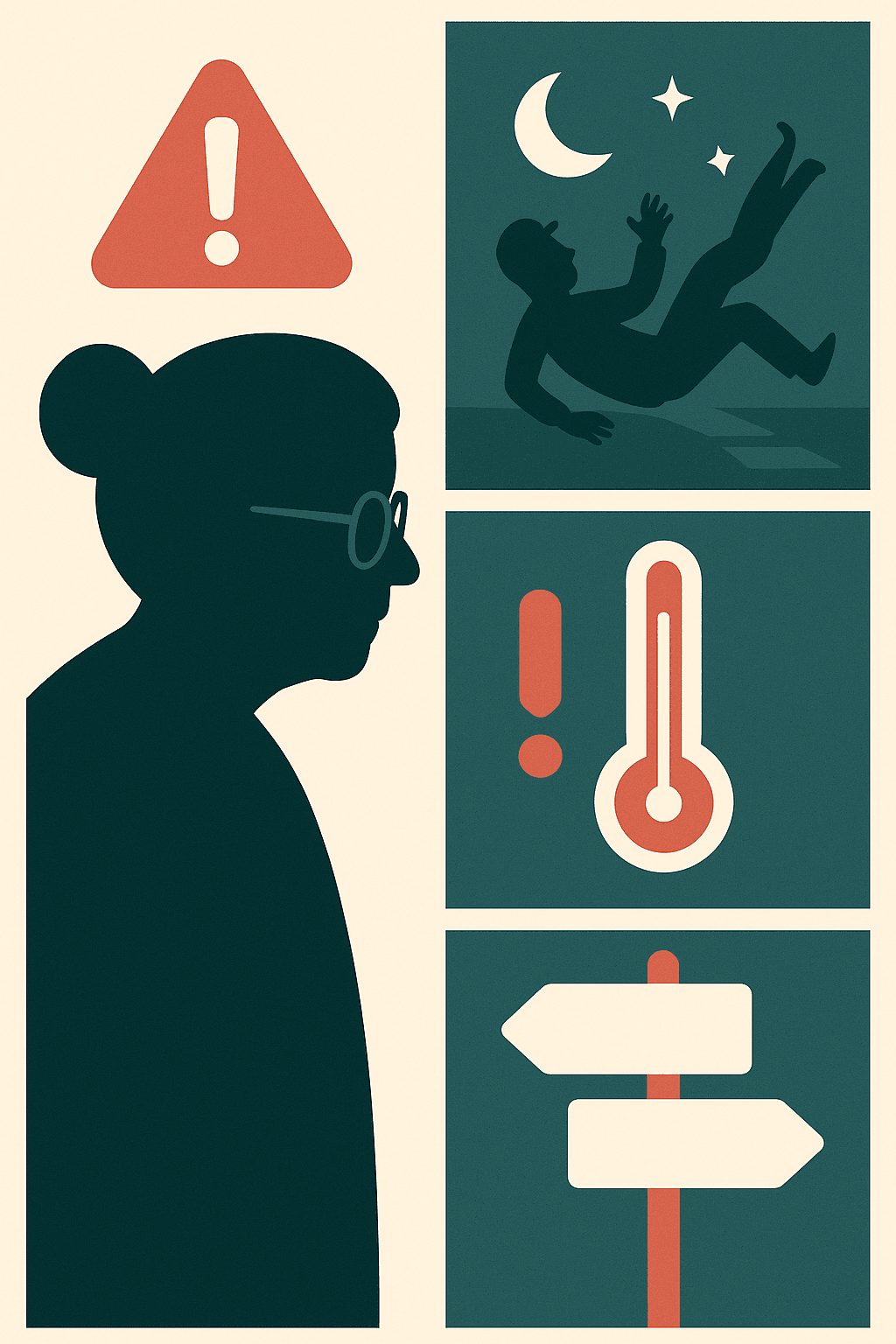
Urgent Care
Emergency Dementia Care Situations Requiring Immediate Medical Attention
Recognising emergency situations is crucial when providing dementia care. Certain symptoms require immediate medical intervention, as dementia can complicate both symptom presentation and treatment.
Acute Cognitive and Neurological Changes
Sudden Severe Confusion or Delirium Significant changes from baseline cognitive function indicate underlying medical conditions requiring urgent dementia care assessment.
New Onset Seizures or Loss of Consciousness These neurological symptoms require immediate professional evaluation in dementia care settings.
Physical Injuries and Safety Concerns
Falls or Head Injuries Head injuries can significantly worsen cognitive symptoms and require immediate medical attention in dementia care.
Wandering-Related Safety Issues When wandering results in unsafe situations, immediate intervention is necessary for effective dementia care.
Medical Complications
Signs of Infection with Fever Infections rapidly worsen confusion in dementia care situations and require urgent medical assessment.
Swallowing Difficulties and Choking These pose serious aspiration pneumonia risks, a common and dangerous complication in dementia care.
Severe Behavioural Symptoms
Extreme Agitation or Aggression Severe behavioural changes posing safety risks constitute emergencies in dementia care settings.
Depression and Suicidal Thoughts Mental health emergencies in dementia care require specialised immediate intervention.
Medication and Nutritional Emergencies
Suspected Overdose or Medication Errors Medication complications are particularly dangerous in dementia care due to complex medication management needs.
Prolonged Refusal to Eat or Drink Extended periods without adequate intake require prompt medical intervention in dementia care.
Abuse and General Emergencies
Signs of Harm or Mistreatment Any indicators of abuse or neglect require immediate reporting and medical assessment in dementia care.
Standard Medical Emergencies General medical emergencies become more complex in dementia care settings, making prompt professional assessment crucial.
Understanding these emergency indicators ensures appropriate and timely medical intervention in dementia care situations.

Dr. Hugh Stephen Winters
Stroke and Interventional Neurologist, MBChB (Auckland), FRACP (Neurology), CCINR (Neurology)
Reviewed on: 22 May 2025
